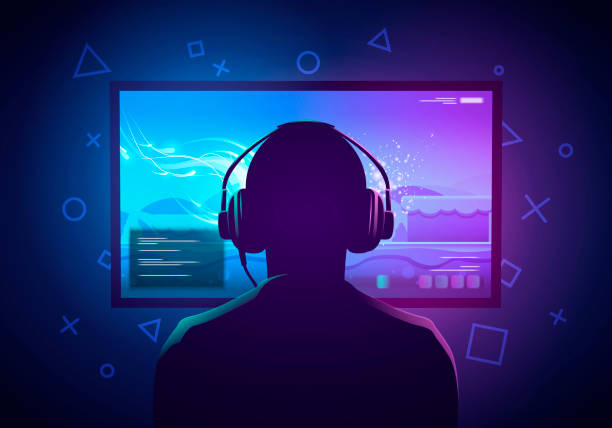Introduction
Are you anxious to dive into the exciting world of live video game streaming? Before you hit that “Go Live” button, it is very important to understand just how much internet speed you need to ensure a smooth and uninterrupted experience. If you are the one who doesn’t know how much speed you need for live video game streaming then this guide is definitely for you. From fast-paced action to thrilling gameplay, let us explore the key factors that decide the ideal internet speeds for live video game streaming. Get started without any further delay!
Factors affecting live video game streaming
When you’re streaming a video game live, there are a few things that can affect how smoothly it goes:
Internet Speed: This is a big one. If your internet is slow, your stream might keep stopping and starting, which isn’t fun for anyone watching.
Computer Power: If your computer isn’t powerful enough to handle both playing the game and streaming it at the same time, your stream might lag or look really pixelated.
Software Settings: Sometimes, the settings in the software you use to stream can make a difference. Things like resolution and frame rate can affect how smoothly your stream runs.
Network Stability: Even if your internet speed is fast, if your connection keeps dropping in and out, it can mess up your stream.
Streaming Platform: Different platforms have different requirements and capabilities. Some might work better with your setup than others.
Minimum internet speed for live streaming
When you’re live streaming, especially video games, you need a certain minimum internet speed to make sure everything runs smoothly. Here’s why:
Steady Stream: Imagine your internet connection is like a pipe that carries water. If the pipe is too narrow, the water can’t flow smoothly. Likewise, if your internet speed is too slow, the video you’re streaming can’t flow smoothly to your viewers’ screens.
Quality Matters: Moreover, video quality is important for a good viewing experience. If your internet speed is too low, the video might look fuzzy or pixelated, which isn’t enjoyable to watch.
Avoid Interruptions: Slow internet can cause your stream to pause or buffer frequently, interrupting the flow of the game and frustrating your viewers.
So, what’s the minimum speed you need?
SD Quality: For standard definition (SD) video, like what you might see on older TVs, you’ll want at least 2-3 Megabits per second (Mbps) of internet speed.
HD Quality: If you want to stream in high definition (HD), which gives you clearer and sharper images, you’ll need around 5-10 Mbps.
FHD and 4K Quality: For even higher resolutions like full HD (FHD) or 4K, which are super crisp and detailed, you’ll need at least 20 Mbps or more to keep everything running smoothly.
However, think of it like driving on a highway: if you want to go faster and smoother, you need a wider road. Similarly, if you want to stream in higher quality, you need more internet speed.

Recommended internet speed for live streaming
Factors to consider
When determining the best internet speed for live streaming, there are several factors that should be taken into account, including the resolution and frame rate of the stream, the number of concurrent viewers, and any additional bandwidth-intensive activities running on the network.
Recommendations for different resolutions
SD streaming: 2-3 Mbps
HD streaming: 5-10 Mbps
FHD and 4K streaming: 20 Mbps or more
| Call 866-861-4084 for Internet Deals |
Impact of insufficient speed
When your internet speed isn’t fast enough for live streaming, it can cause you a few problems:
Buffering: You know when you’re watching a video and it suddenly stops to load? That’s called buffering. If your internet is too slow, your stream might keep buffering, interrupting the game and making it hard for people to watch.
Lag: Ever tried to watch a video that keeps pausing and jumping around? That’s lag. Slow internet can cause your stream to lag, making the game look jumpy and difficult to follow.
Quality Drops: Sometimes, when your internet speed is low, the quality of your stream goes down. The video might look fuzzy or blurry, which isn’t great for viewers who want to see all the action clearly.
Testing internet speed for live streaming
When you’re getting ready to stream a video game live, it’s a good idea to check your internet speed first. This is like making sure your car has enough gas before a long road trip!
So, here is how you can test your internet speed:
Online Tools: There are websites where you can go to check your internet speed. You just click a button, and they’ll tell you how fast your internet connection is.
Speed Test Apps: You can also download apps on your phone or computer that do the same thing. They’ll give you a speed reading to see if your internet is up to snuff for streaming.
Interpreting Results: Once you’ve run the test, you’ll see numbers like “Mbps” (megabits per second). This tells you how fast your internet is. The higher the number, the better!
It’s like checking the weather before going outside – you want to make sure conditions are right for a smooth stream. If your internet speed is too slow, you might need to wait until it’s faster or try some tricks to improve it, like using a wired connection instead of Wi-Fi.
Furthermore, testing your internet speed before streaming helps you avoid problems like buffering or lag during your live broadcast. It’s like checking your parachute before jumping out of a plane – you want to make sure everything’s working properly!
Tips for optimizing Internet speed
Here are some simple tips to optimize your internet speed for live streaming. Give them a look.
Use a Wired Connection: Connecting your computer or gaming console directly to your router with an Ethernet cable can provide a more stable and reliable internet connection as compared to Wi-Fi. It’s like plugging your device directly into the internet highway instead of relying on signals that might get weak or interrupted.
Close Unnecessary Apps: Shutting down other applications and programs running on your device while streaming can free up bandwidth and resources and allow your internet connection to focus on delivering a smooth stream. Think of it like clearing out traffic on the road so your streaming data can flow freely without any slowdowns.
Upgrade Your Internet Plan: If you find that your current internet plan isn’t providing enough speed for smooth streaming, consider upgrading to a higher-speed plan offered by your internet service provider. It’s like switching from a regular bike to a high-speed racing bike and that is how you will get to your destination (or stream) faster and more efficiently. Well, there is no doubt that a faster plan can significantly improve the quality and reliability of your streams.

Conclusion
In wrapping up, the speed of your internet connection plays a vital role in live video game streaming. Whether you’re just starting out or aiming for the highest quality, having sufficient speed makes sure a seamless experience for both you and your viewers. By understanding your streaming needs and optimizing your setup accordingly, you can dive into the world of live streaming with confidence, knowing that you’re equipped to deliver top-notch content without any hiccups.
Unique FAQs
What if my internet speed fluctuates during a stream?
If you experience fluctuations in internet speed during a stream, try reducing the stream’s resolution or frame rate to alleviate the strain on your connection.
Can I stream with a mobile hotspot?
While possible, streaming with a mobile hotspot may not provide consistent or reliable internet speeds, especially in areas with weak cellular reception.
Do I need a high upload speed for streaming?
Yes, a high upload speed is essential for streaming, as it determines how quickly you can send data to the streaming platform. Aim for an upload speed that meets or exceeds the platform’s recommendations for your desired resolution.
Why do some streams have a delay between the gameplay and viewer interaction?
Stream delays are often implemented to prevent cheating in competitive games or to mitigate potential streaming issues such as buffering. These delays can vary depending on the streaming platform and settings chosen by the streamer.
What should I do if I encounter technical difficulties during a stream?
If you encounter technical difficulties during a stream, such as buffering or connection drops, communicate with your audience transparently and attempt to resolve the issue promptly. Consider having backup plans in place, such as alternative streaming platforms or troubleshooting steps.

Meet Jennifer Harper, a wordsmith extraordinaire who has been shaping the digital landscape with her creative prowess for the past two years. Not just a content writer; she is a storyteller who brings the content to life. Her passion for internet trends, memes, and the ever-evolving world of entertainment is evident in every piece she creates. Jennifer doesn’t just follow trends; she sets them.